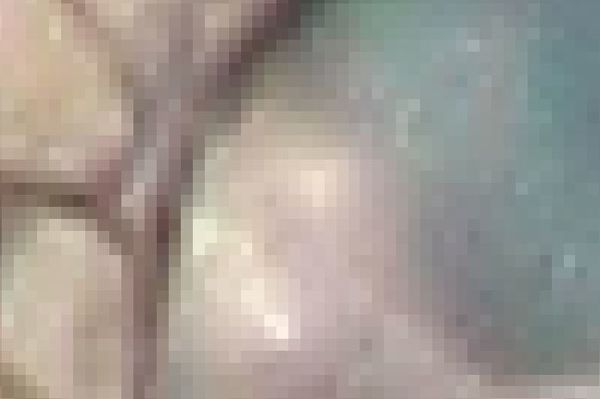Sharpness in a photo
Dec 18, 2020 07:08:12 #
How does one determine if a photo is sharp enough?
I generally view them at 100% and again at 300%. If a photo looks sharp at 100% is that a sharp photo?
I generally view them at 100% and again at 300%. If a photo looks sharp at 100% is that a sharp photo?
Dec 18, 2020 07:25:18 #
tcthome
Loc: NJ
lbjed wrote:
How does one determine if a photo is sharp enough?
I generally view them at 100% and again at 300%. If a photo looks sharp at 100% is that a sharp photo?
I generally view them at 100% and again at 300%. If a photo looks sharp at 100% is that a sharp photo?
YES
Dec 18, 2020 07:28:28 #
lbjed wrote:
How does one determine if a photo is sharp enough?
I generally view them at 100% and again at 300%. If a photo looks sharp at 100% is that a sharp photo?
I generally view them at 100% and again at 300%. If a photo looks sharp at 100% is that a sharp photo?
For me, 100% is quite enough, and I'm kinda OCD.
But, aren't most photographers?
Costco has printed out my "sharp enough at 100% files" to 20 X 30" and they looked great to me.
Also, folks that received them seemed well pleased.
This is just my opinion, I'm sure that many more will follow.
Enjoy your hobby.
Have a Merry Christmas
And a Safe and Healthy New Year!
Smile,
JimmyT Sends



Dec 18, 2020 07:35:00 #
Dec 18, 2020 07:56:27 #
sharp is when the detail is clear and well defined. I think that this photo of my grandson is sharp. The focus point was his face near his nose; just a little below his eye. At 100% the tiny hairs on his face are sharp. D850 iso 64, f10, 1/180s with flash. The second photo is about 100% showing all the wear on his face from a day of play. I think this would print well at 8x10 which would almost be life size
Dec 18, 2020 08:01:59 #
If it seems sharp at normal viewing size and normal viewing distance, it's sharp. I see a lot of ruined photos where the image has been over processed, over sharpened and/or too much clarity. These settings don't really sharpen....they increase micro contrast at the edges of pixels and can easily cause things that should be smooth to look crunchy, or busy....think grass or water. True sharpening is created with a quality lens and good technique.
Dec 18, 2020 08:03:33 #
Dec 18, 2020 08:39:06 #
I never zoom an image beyond 50% to determine if it is sharp. A 50% crop is the equivalent for a pretty big enlargement.
At 100% crop if they look sharp they are sharp enough.
At 100% crop if they look sharp they are sharp enough.
Dec 18, 2020 08:51:22 #
Dec 18, 2020 09:08:43 #
Review all your images at the 1:1 pixel level to determine the image sharpness, before any processing. Cull any image image that isn't sharp before processing, they won't get better later. Only use your valuable and limited time to process the keepers.
Consider these ideas too, including examples of reviewing the 1:1 details (aka 100% zoom):
How to obtain sharp images in digital photography
Consider these ideas too, including examples of reviewing the 1:1 details (aka 100% zoom):
How to obtain sharp images in digital photography
Dec 18, 2020 11:33:08 #
lbjed wrote:
How does one determine if a photo is sharp enough?
I generally view them at 100% and again at 300%. If a photo looks sharp at 100% is that a sharp photo?
I generally view them at 100% and again at 300%. If a photo looks sharp at 100% is that a sharp photo?
If a photo simply looks sharp enough, then it truly IS sharp enough.
A dirty little secret is that photos are only just for looking at, not for clinical inspections. You did ask about photos being sharp enough.
OTOH if testing the limits of a lens, then THAT is where inspection is appropriate. The lens is the front end of the imaging chain, while the resulting photo or print is the end of it.
The front end and intermediate stages bear inspection, but the end product is just for eyeball viewing.
Dec 18, 2020 17:21:03 #
It's good to check your equipment- cameras and lenses to make certain they are performing well and in good repair. If you make lots of large prints or display your images on large screens, this is especially important.
Most modern lenses are sharp, some more than others and of course, camera formats and pixel counts factor in.
When testing or evaluating a camera or lens, you can examine the images at 300% magnification. If the results are disappointing, make sure your equipment is properly aligned and you did not mess up in shooting with inaccurate focusing, camera movement, insufficient shutter speed, etc. Conduct test using a tripod and careful exposure and focus management. if you suspect a problem you either need to send your gear in for repair or if it is irreparable or really inferior equipment, you should consider replacing it.
At the end of the day, consider this. How many large prints or photomurals are you producing? Are you satisfied withte the results you are getting with the prints and display methods you are using? You make a print, it is sharp to your eyes, you mount and frame it and display it proudly- how many folks are gonna view it at 300% magnification?
If you don't frame and compose your images "properly" and you need to radically crop every shot- you are gonna be disappointed regardless of the quality and performance of your gear. If you shoot everything at ISO 6500- again, how is your gear gonna help you?
In my own case, as a commercial shooter, many of my images end up on billboards, transit advertising on the sides of buses and trucks, and dispatched in the Jumbotron at our local NHL venue. Not all of my lenses are camera are the latest and greatest, although I do shoot someof my stuff on medium format digital the results are sharp even from my 8-year old Canon gear.
So, shoot carefully, test precisely and if you are still dissatisfied, it's time for a fix or a replacement.
OCD? I ain't a psychologist and many folks bandy about "diagnoses" of mental and neurological disorders. I prefer to say "fussy, precise, or attentive to detail" rather than OCD. The problem is, however, that so many well-meaning photographers are so busy look for trouble- optical aberrations, difraction, noise, and a log list of malfunction and defects, that they don't have energy, creativity, and artistry left in the approach that the miss out on good images, spontaneity and fun. It's likely that 80% of the defects and glitches they are looking for will not even be detectable in 16x20 prints and the "faults" may even add to the mood!
Most modern lenses are sharp, some more than others and of course, camera formats and pixel counts factor in.
When testing or evaluating a camera or lens, you can examine the images at 300% magnification. If the results are disappointing, make sure your equipment is properly aligned and you did not mess up in shooting with inaccurate focusing, camera movement, insufficient shutter speed, etc. Conduct test using a tripod and careful exposure and focus management. if you suspect a problem you either need to send your gear in for repair or if it is irreparable or really inferior equipment, you should consider replacing it.
At the end of the day, consider this. How many large prints or photomurals are you producing? Are you satisfied withte the results you are getting with the prints and display methods you are using? You make a print, it is sharp to your eyes, you mount and frame it and display it proudly- how many folks are gonna view it at 300% magnification?
If you don't frame and compose your images "properly" and you need to radically crop every shot- you are gonna be disappointed regardless of the quality and performance of your gear. If you shoot everything at ISO 6500- again, how is your gear gonna help you?
In my own case, as a commercial shooter, many of my images end up on billboards, transit advertising on the sides of buses and trucks, and dispatched in the Jumbotron at our local NHL venue. Not all of my lenses are camera are the latest and greatest, although I do shoot someof my stuff on medium format digital the results are sharp even from my 8-year old Canon gear.
So, shoot carefully, test precisely and if you are still dissatisfied, it's time for a fix or a replacement.
OCD? I ain't a psychologist and many folks bandy about "diagnoses" of mental and neurological disorders. I prefer to say "fussy, precise, or attentive to detail" rather than OCD. The problem is, however, that so many well-meaning photographers are so busy look for trouble- optical aberrations, difraction, noise, and a log list of malfunction and defects, that they don't have energy, creativity, and artistry left in the approach that the miss out on good images, spontaneity and fun. It's likely that 80% of the defects and glitches they are looking for will not even be detectable in 16x20 prints and the "faults" may even add to the mood!
Dec 19, 2020 05:34:37 #
cmc4214
Loc: S.W. Pennsylvania
E.L.. Shapiro wrote:
It's good to check your equipment- cameras and len... (show quote)
The last paragraph



Dec 19, 2020 06:08:19 #
lbjed wrote:
How does one determine if a photo is sharp enough?
If it meets my standards for the medium and size it's use is intended.
Dec 19, 2020 07:44:38 #
If you want to reply, then register here. Registration is free and your account is created instantly, so you can post right away.









